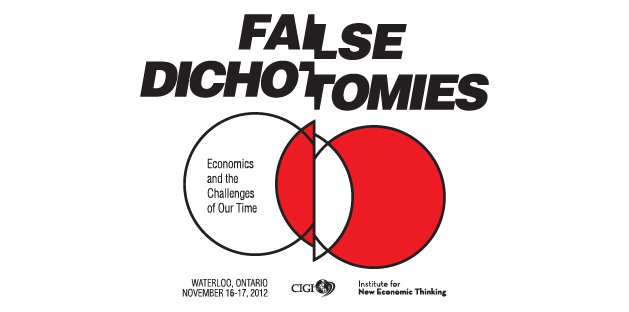
Analytical distinctions, like those made in economics, are necessary for any theoretical advances to occur. When these distinctions begin to shape an economist’s view of the world rather than respond to it, it is right to ask if these distinctions have lost their usefulness, an enquiry that can, in itself, be a source of intellectual progress.
At this conference, the Institute for New Economic Thinking (INET) and The Centre for International Governance Innovation (CIGI) will train the spotlight on some of the bright lines that have been drawn by economists—between macro and micro, between money markets and capital markets, and between developed countries and developing economies. The aim is by no means to do away with all analytical categorization; indeed, distinction is the foundation of all systematic knowledge. However, when economic theories are unable to answer the intrinsically important questions, such as those related to the stability of the financial system or the distribution of wealth and income, the question arises whether the lines drawn within economics are the right ones. For example, the issue of aggregation could be seen as the boundary that divides micro and macroeconomists. Likewise, national boundaries divide macroeconomics from international economics, yet these national boundaries may not be analytically relevant in all cases. The distinctions are not only intellectual, but also sociological: macroeconomists and microeconomists often carry on separate conversations, reinforcing the division between them. To the community, these constraints are in fact very real: they condition the work that economists do, the jobs they can get, and the journals that will publish their work.
This conference aims to take an inside-the-discipline approach in order to highlight the field’s problems and constraints. Training the spotlight on such issues can be a source of intellectual discomfort but it can also be a productive way to challenge the discipline if done well. The sessions will create conversations about and across the normal boundaries of the field, to ask why those lines exist, what advances they permit, and—potentially—what avenues they close off.
Please see below for the conference agenda and the mini-school courses.